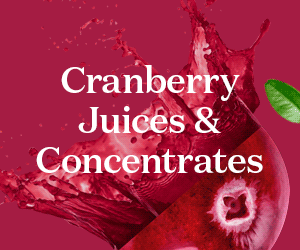As the plant-based dairy sector continues to gain ground, yogurt alternatives are expanding their appeal. Propelled by health and ethical concerns, companies are introducing a wide range of tasty dairy-free yogurts made using ingredients such as soy, almonds, oat, pea and coconut. The Plant Base examines this growing market.
According to market research company, Imarc Services, the global vegan yogurt market reached a value of $1.94 billion in 2020, and is expected to exhibit a CAGR of 17.7% between 2021 and 2026. In the US, dollar sales of plant-based yogurt in retail grew 61% between 2018 and 2020, according to SPINS data supplied by the Good Food Institute.
Flexitarian diets are driving wider audiences to plant-based meat and dairy, with vegan yogurts being no exception. YouGov commented that: “Brands have a great opportunity to increase their market share among flexitarians: under a third (30%) use a meat or dairy substitute at least weekly”.
Health-conscious consumers are looking for different ways to ensure they are getting the nutrients they need from their food. And plant-based products can incorporate health benefits, such as antioxidant properties, digestive and immune health support, and much more.
Gut health
Propelled by consumer lifestyle trends, many businesses in the plant-based space are striving to make their products as clean and healthy as possible. The Coconut Collab, for example, is creating vegan products that support a healthy digestive and immune system.
Earlier this year, the brand launched what it claimed was the UK’s first plant-based yogurt range dedicated to promoting better gut health – featuring billions of live and active bacteria, as well as prebiotic fibre. The yogs are also fortified with calcium, and vitamins D, B6 and B12.
James Averdieck, founder of The Coconut Collab, explained that this is an important combination for adults and children with food intolerances or other dietary requirements.
“Calcium contributes to the normal function of digestive enzymes, while vitamins D, B6 and B12 contribute to the normal function of the immune system. Vitamin B12 is a vital nutrient that is not as easily available through a plant-based diet, so it is important that diets which exclude all animal products…ensure that they obtain their recommended daily intake from fortified sources or supplements.”
He added: “We are particularly aware of the recent boom amongst the dairy ‘active health’ market and see a clear untapped opportunity to mirror this within plant-based yogs. How people understand ‘gut health’ is beginning to become much more than just ‘good bacteria and digestion,’ and has seen a shift in focus towards how diet can complement your whole lifestyle.”
High-protein
Many consumers nowadays are looking for plant-based yogurts that provide high protein content. A 2021 US survey by the International Food Information Council (IFIC) found that while consumers place a premium on naturalness regardless of whether a yogurt is dairy- or plant-based, when it comes to the latter, protein is also a top priority for many. After “natural,” the second highest proportion of respondents (9%) ranked “high protein content” as the claim that was most important to them.
Many plant-based yogurt brands are launching new offerings in response to this demand. For example, Danone released a line of protein-packed, Greek-style yogurt alternatives under its Silk brand last year, that contains 10g of plant-based protein, and live and active cultures.
Meanwhile, Siggi’s plant-based coconut blend recipe is said to contain three times the protein and 35% less sugar than “the leading yogurt alternatives”.
Shapes and formats
Due to the rising consumption of plant-based yogurts, companies are now introducing products in many different shapes and formats, helping to attract not only adults but also younger consumers. For instance, Forager Project recently launched a cashew milk yogurt line packaged in squeezable pouches that can be enjoyed on the go.
Children often opt for easy-to-drink products, and The Collective is another company servicing this need with its latest release. It recently announced that it was expanding its plant-based portfolio with the launch of new dairy-free children’s ‘suckies’ yogurt pouches.
A proliferation of exciting products and formats is helping fuel consumers’ appetite for vegan yogurts. Companies have their work cut out to meet shoppers’ expectations on nutrition, alongside taste and texture, but tapping into the prevailing market trends could steer brands towards sweet success in this category.
#blog #Dairyalternatives #plantbasedyogurts


_gif.gif)



